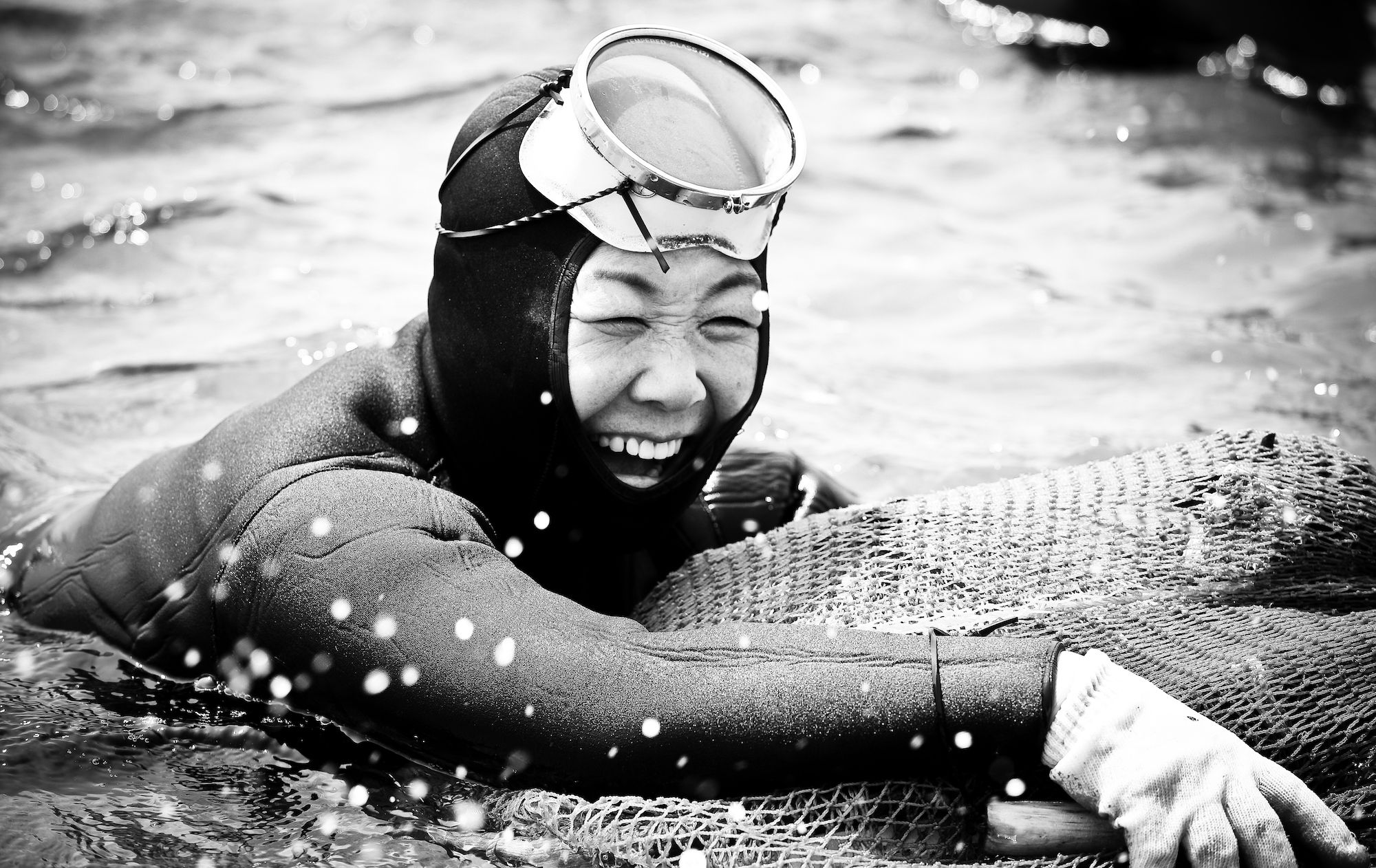Female free divers are going to great depths to challenge the limits of human ability, save marine life and return to the source
Throughout history, the ocean has been referred to as a feminine entity—the mother, where all life began. We, and all mammals, are more connected to the ocean than we realise—even before we’re born. The amniotic fluid in a woman’s womb is remarkably similar to seawater, containing the same salts in almost exactly the same proportions. When babies’ legs begin to form, they start off as one fin-like limb. Our first movements are similar to those of fish; swimming, living and growing in an ocean-like fluid.
“A lot of people have said that free diving is like being reborn or being back in the womb,” says Chelsea Yamase, better known to her 928,000 Instagram followers as Chelsea Kauai. Chelsea is part of a growing community of female free divers plunging to the depths of the ocean, free of any life-saving equipment.
As a sport, free diving is often described as one of the most dangerous in the world. It defies our expectations of human ability, or what we thought were our limitations, as these real-life mermaids spend six to eight minutes under the water, alone, on a single breath.
“In my experience, diving is 90 per cent mental and 10 per cent technique or physicality,” says Yamase. “Some days it’s easier, or I’m so amazed by wildlife that it’s easier to forget about the discomfort of not breathing. Other days, my brain tends to shout very loudly at me. You have to be willing to be uncomfortable. I try to focus my mind on being present. I can feel it like a switch in my brain, where everything gets very quiet. I think science would call it being in flow state. I guess it’s similar to meditation.”
The strain that free diving puts on the body is a jarring contrast to this seemingly serene activity. The heart slows by 50 per cent at 30 metres, lung capacity shrinks from six litres to one and, finally, the brain begins to shut down to conserve oxygen. Blacking out is common and, unfortunately, so is death. But for these women, it’s about more than how deep they can go. It’s the journey down, and what they discover about the world, and about themselves, along the way.
Sofia Gomez Uribe, a Colombian free diver and three-time world record holder, says, “I feel a divine connection with the water. When I’m in the ocean I feel so small and insignificant, in a good way. When I enter the ocean, I surrender to her power and strength, I remember how small I am and I remember that the ocean is the one in charge. I feel free.”
Our love for, and our closeness with, nature, particularly with the ocean, is a language that is becoming lost. But these free divers around the world are looking to deepen that connection. There are competitive divers, like Gomez Uribe, and those who do it for leisure, like Yamase. Finally, there are the deep-sea heroes who use free diving as a way to save our oceans. One seen here is named—aptly—Ocean Ramsey. Her grandfather was a submarine captain and her father a diver. “When I was a kid, we’d hit golf balls into the water and dive into the ocean to try and pick them all up, and swim through the lava tubes,” she recalls.
Today, Ramsey operates One Ocean Diving in Hawaii, where she takes curious divers on expeditions to swim with sharks, with the hope that through a better understanding of these fascinating species, they’ll do more to protect them. She has travelled the world to spread this message, including to Hong Kong multiple times to tackle the shark fin trade.
She says, “Since the ocean is the environment that covers the majority of the world, I think it’s important to help people get to the ocean to see how beautiful and incredible that world is.”

